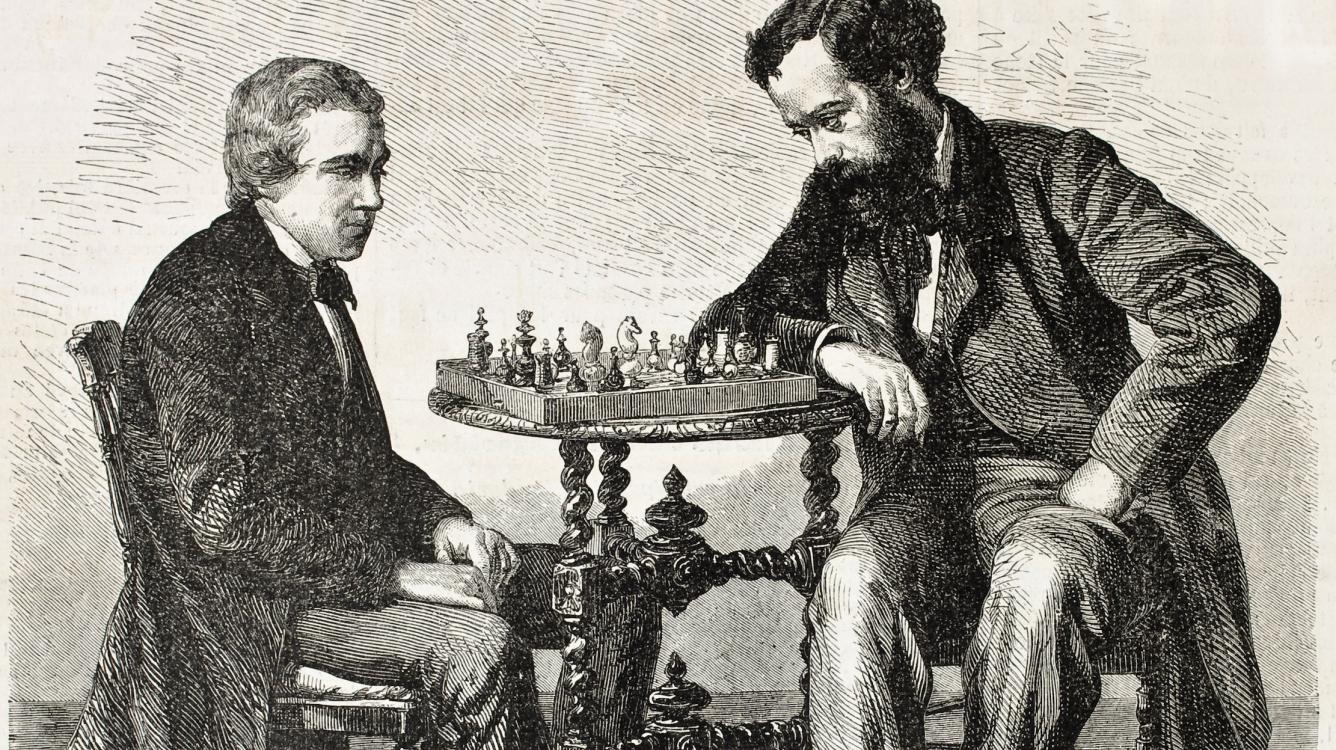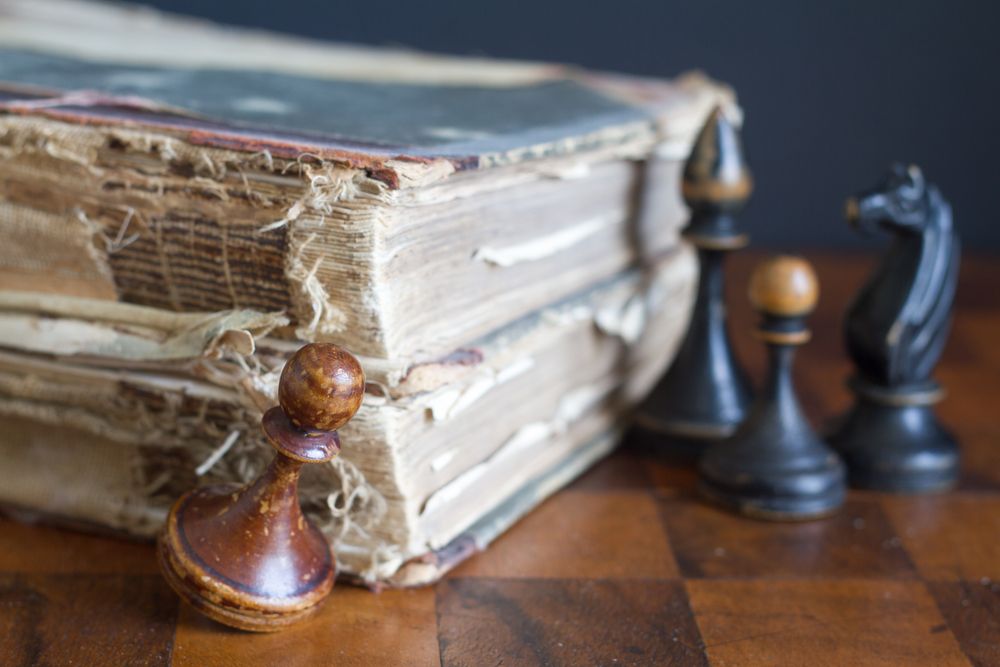
Were Players In The 1800s Terrible?
The Chess.com member LittlePawn988 wrote:
Something really bugs me. I often hear players, of every level, talking about the strength of masters of the past and sometimes I find them really arrogant and disrespectful. Even lower-rated players say Steinitz and players of his era like Zuckertort, Blackburne, or Chigorin were basically patzers and barely play like 2000-rated players. People write about how an IM can easily defeat Capablanca or Alekhine and how Lasker was world champion just because players of his era were very weak. Morphy is the only player who isn’t criticized too much.
Are these people right about the strength of the past masters?
SILMAN:
Nowadays people on Twitter and other places that have reader comments think they know everything. People who have no understanding of science insist that the scientists are wrong, and some Twitter users (you know, all those mean-spirited people who hide with their fake names) recently attacked an American model who did a photoshoot in Japan, saying that her wearing a kimono was stealing Japanese culture (these critics didn't know that anyone and everyone is welcome to rent or buy a kimono in any Japanese city).

The model Karlie Kloss in the March 2017 Vogue magazine photoshoot. Photo by Mikael Jansson via Google Images / Vogue.
Now let’s talk about chess, which also suffers from that same know-it-all mentality. To belittle those chess masters that came before us is the height of egotism or stupidity. Without Gioachino Greco (1600-1634) many tactical patterns would have taken hundreds of years to discover. Greco also was an incredible opening theorist and most of the things he discovered are used today. You might say, “Well, was he any good as a player?” I’ve studied Greco in depth, and I can say that he was hundreds of years ahead of everyone else. His tactical skills were 2400-level and overall (mixing positional and endgame play) he was, at the very least, 2250 and would probably have been an IM or GM if he had anyone that could challenge him.
Indeed, he was the first to understand the importance of pawn structures, way before Francois Andre Danican Philidor (1726-1795) who was, at best, around 1900-strength (this is, to be fair, an educated opinion. But I’m slowly convincing various titled friends that this is the case.).

But let’s move on to other well-known names: Paul Morphy (1837-1884) was clearly grandmaster-strength thanks to his high-level positional understanding and outrageous tactical skills. Joseph Henry Blackburne (1841-1924) was incredibly talented (a high IM or lower GM in modern time). Wilhelm Steinitz (1836-1900) — His chess looked old-style, but where would we be without his teachings? Also, if Steinitz was so weak, how did he dominate chess from the mid-1870s to 1894 when Lasker dethroned him?
Emanuel Lasker (1868-1941) — Tal called him the greatest player who ever lived. Capablanca (1888-1942) was viewed as a unbeatable chess machine. And Alexander Alekhine (1892-1946) — Kasparov was in awe of his tactical powers and amazing imagination.
Yes, I didn’t bring up other famous names, so let me give you a few other legends: Zuckertort, Chigorin, Pillsbury, Bogoljubov, Reti, Tarrasch, Nimzowitsch, Rudolf Spielmann (he won two, lost two, and drew several against Capablanca), and many more. All of them gave a lot to chess, and would wipe modern 2400 players into pulp.
But here’s the scary part: These guys had to create openings that we now take for granted. They had amazing tactical skills. And endgames…Capablanca, Akiba Rubinstein, and Emanuel Lasker would be as good, or better, than those high-2700 and even 2800 super-grandmasters in the endgame.
And one final scary thing: none of them had the tens of thousands of chess books that are around nowadays. They didn’t have ChessBase. Imagine if you gave them a year or two to catch up on databases and whatnot. They would be chess monsters.
Here’s a sample of Greco demonstrating his positional understanding.
Here’s Blackburne (1841-1924) playing in a simultaneous exhibition. He was blindfolded while his opponent was able to see the board and pieces. Can you can play like Blackburne with your eyes wide open?
Blackburne loved sharp play, but he was able to show his positional skills if the position needed it.
Think about this. These 1860/1870 guys were often completely drunk while playing, yet they were able to play at a very high level. Blackburne had no modern training, yet he was feared all over the globe. Do you really think that a modern 2000 or even 2300 player could withstand Blackburne’s skills? No way. And if Blackburne did magically appear in 2017 and spent a year looking at a zillion games on ChessBase, well, even modern grandmasters would have a very tough time if they played him.

LittlePawn988 said people wrote about “how an IM can easily defeat Capablanca or Alekhine and how Lasker was world champion just because players of his era were very weak.”
What a joke. These people were either upsetting you just for the pleasure of being a troll, or they are demented fools. Lasker was a titan of chess, and as he hit his 50s and 60s (ages where most professional players go out to pasture) he faced off with quite a few young up-and-comers (successfully), including a 3-0 record against Euwe.
As for Alekhine, if the trolls aren’t able to see Alekhine’s obvious genius then let them rave at the moon as much as they want. People like that are hopeless.
Here’s what Kasparov said in this excellent book, My Great Predecessors, Part 1: “Alexander Alexandrovich Alekhine has been called a ‘genius of chess combinations.’ However, his fantastic combinative vision was based on a sound positional foundation, and was the fruit of strong, energetic strategy. Therefore Alekhine can safely be called the pioneer of the universal style of play, based on a close interweaving of strategic and tactical motifs.”
Here’s a very famous game that will make any player bow before Alekhine’s otherworldly powers:
The point is that talent can (and always does) appear throughout history. But as the old guard had to figure out things that weren’t known, modern players are gifted with the old guys' hard work. Give those talented geniuses what we know today and they too would be strong grandmasters. In fact, I have no doubt that super-talents like Lasker, Capablanca, and Alekhine, after working with ChessBase, would be giving Magnus all that he could handle.



